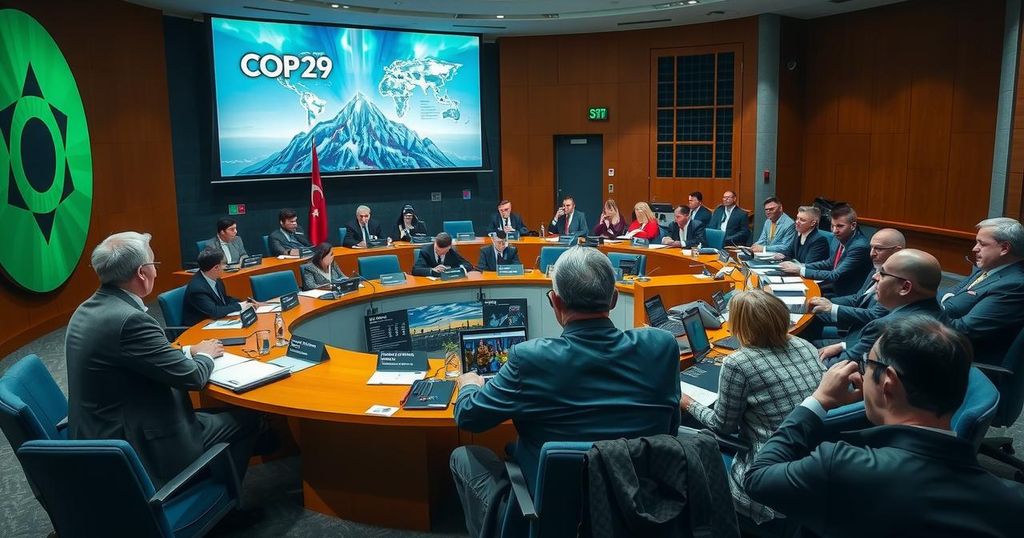The Baku Backlash: Hope for Climate Action Beyond Cop29
The article reflects on the recent setbacks experienced at Cop29 in Baku regarding climate finance, drawing comparisons to historical commitments made by leaders like Rafael Correa of Ecuador. It explores the challenges faced by countries relying on fossil fuels, as well as the importance of international support for climate initiatives, particularly within developing nations. As attention shifts toward the next climate summit in Belém, there remains hope for innovative financing solutions that could empower environmental transitions in the face of these pressing issues.
The recent Cop29 conference in Baku has ignited a conversation regarding the future of climate change initiatives amidst substantial setbacks. Chris Wright reflects on the historical precedent set by Ecuador’s former President Rafael Correa, who, despite ambitious proposals for protecting biodiverse regions like Yasuni National Park, succumbed to fossil fuel pressures as financial commitments fell short. Similarly, current global contexts reveal emerging leaders, including Colombia’s Gustavo Petro, striving for bold environmental reforms while battling economic difficulties.Amidst the competing interests of fossil fuel reliance and climate commitments, Brazil’s negotiators at Cop29 endeavored to establish a roadmap aiming for $1.3 trillion in climate finance to alleviate these pressures for developing nations. This entailed promoting grants and low-interest loans to facilitate green projects and implement necessary economic reforms. Wright emphasizes the urgency of rallying international support to maintain momentum for progressive climate policies as upcoming elections may hinder such efforts. Despite the dire challenges, the forthcoming climate summit in Belém could present new opportunities for fiscal support and collaboration toward achieving crucial climate goals.
The text discusses the implications of the Cop29 climate conference, focusing on the financial challenges faced in committing to substantial climate initiatives. It draws parallels between past efforts to secure environmental protections and current attempts by leaders in Latin America to transition away from fossil fuel dependence. The historical context of Ecuador under Rafael Correa serves as a cautionary tale about the fragility of environmental commitments when faced with economic pressures. Furthermore, the discussion illustrates the dynamics at play as developing nations seek international financing to support their ecological goals, particularly within an increasingly polarized global landscape. The narrative highlights the necessity of collective action and innovative financing to counter the dominant fossil fuel interests that threaten climate progress.
In conclusion, the discourse surrounding the Cop29 conference underscores the challenges inherent in pursuing climate finance amid prevailing fossil fuel interests. However, there exists a potential for renewed commitment and support from global leaders in upcoming summits. The experiences from past initiatives inform the understanding that financial backing is crucial for enabling successful climate transitions, particularly for progressive governments in Latin America. The road from Baku to Belém remains fraught with difficulties; nonetheless, it holds the promise of resilience and possibility for future climate agendas, should stakeholders actively engage in facilitating supportive frameworks.
Original Source: www.independent.co.uk




Post Comment